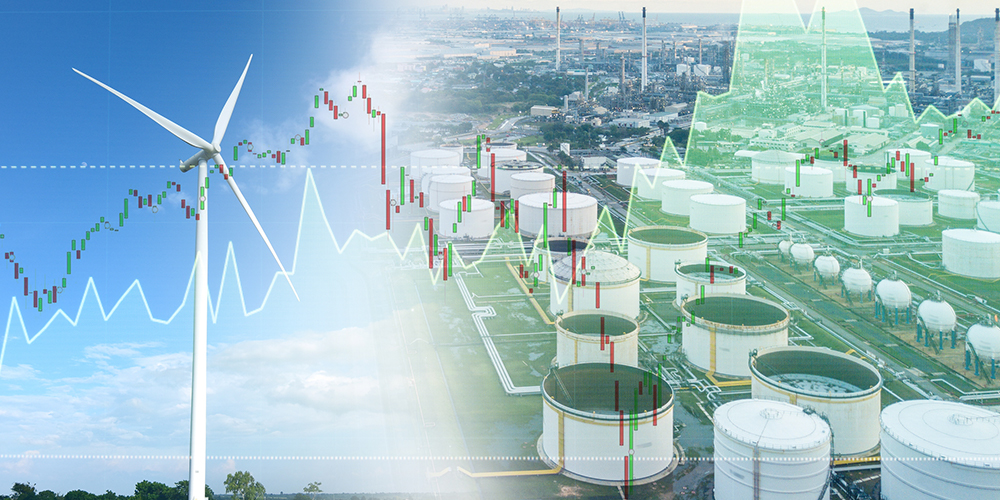How much power do central banks have to address the climate change crisis? The answer, it would seem, is not much, especially if the implementation of global climate policy is postponed.
At a virtual roundtable last Wednesday, OMFIF hosted two senior economists from the Czech National Bank, Martin Motl and Jaromír Tonner, to discuss their research on the economic impacts of climate change on the global economy. Seeking to address what they view as a gap in the literature and discourse on the topic, the economists presented the findings of their National Institute Global Econometric Model – a quarterly econometric model covering 60 countries and regions.
Discussions around climate-related economic impacts focus foremost on growth and sectoral effects, less on inflation and least of all on monetary policy. Using risk modelling incorporating both physical and transition shocks, Motl and Tonner found that climate change will have a global stagflationary effect overall and will need to be addressed by tighter monetary policy.
Perhaps more importantly, the economists voiced the need for central banks to ‘rethink and expand’ analytical and modelling systems to capture the broader economic impacts of climate change. In the NiGEM scenarios, climate policy was modelled using the worst-case scenario of ‘current climate policy’. The other two scenarios – delayed transition and zero emissions by 2050 – seem idealistic at this point, given the continued struggles of world leaders to reach meaningful consensus at COP26.
Moreover, crises like Covid-19, which pose the risk of increasingly disruptive exogenous shocks, were modelled as natural disaster crises outside of the economic system. However, given the disastrous economic consequences of the pandemic, this is arguably a conservative estimate of the negative impacts of natural disasters. According to Motl and Tonner, as in the case of the coronavirus pandemic, the physical effects of climate change will lead to distortions in productivity (supply), which will partly result in faster price increases.
The roundtable proceeded with a discussion of ‘unconventional’ tools in central banks’ arsenals, such as quantitative easing, exchange range targeting and foreign reserve management. However, Motl and Tonner hinted at the resulting political pressures these measures could entail. Tonner concluded that, ‘In the case of long-lasting disasters and huge structural changes, monetary policy has practically no power to affect the real economy in the long-term.’
Their models only predict outcomes up to 2050. Motl underlined that other economic research going beyond this timeline indicates that climate change effects will increase exponentially in size and frequency. External shocks which cannot be influenced by central banks will only become harder to manage – not to mention the incalculable spill over effects posed by this scenario. The results of the analyses show that, in the event of timely implementation of global climate policy, a more pronounced decline in real economic activity can be avoided at the cost of higher inflation in the short term. This is the case with the coordination of governments and central banks, which would exempt inflationary effects reflecting the green structural policies of governments and maintain a slightly more relaxed monetary policy.
Some attendees held a cautiously more optimistic outlook, positing that there may be silver linings to the impacts of climate change. They suggested that there were potentially positive outcomes from supply and demand shocks, including increased productivity, labour market expansion (especially in highly skilled jobs) and technological innovations. These impacts could hypothetically stimulate economies to overcome political deadlock on climate change. Closer co-operation with the private sector could help overcome the bottlenecks of political deadlock.
Nevertheless, Tonner and Motl retained a note of caution. Though acknowledging that the green transition will create new technologies, innovations and jobs, a lot of jobs will be lost in ‘dirty’ sectors. This will need to be carefully balanced with overcoming the harmful impacts on the environment and human health to avoid outweighing the positive effects of transition.
Whatever policies central banks do have at their disposal need to be implemented soon if they are to be of any use. ‘I wouldn’t recommend postponing preparation,’ was the advice given by Tonner.
Taylor Pearce is joining OMFIF’s Economic and Monetary Policy Institute as Economist.
